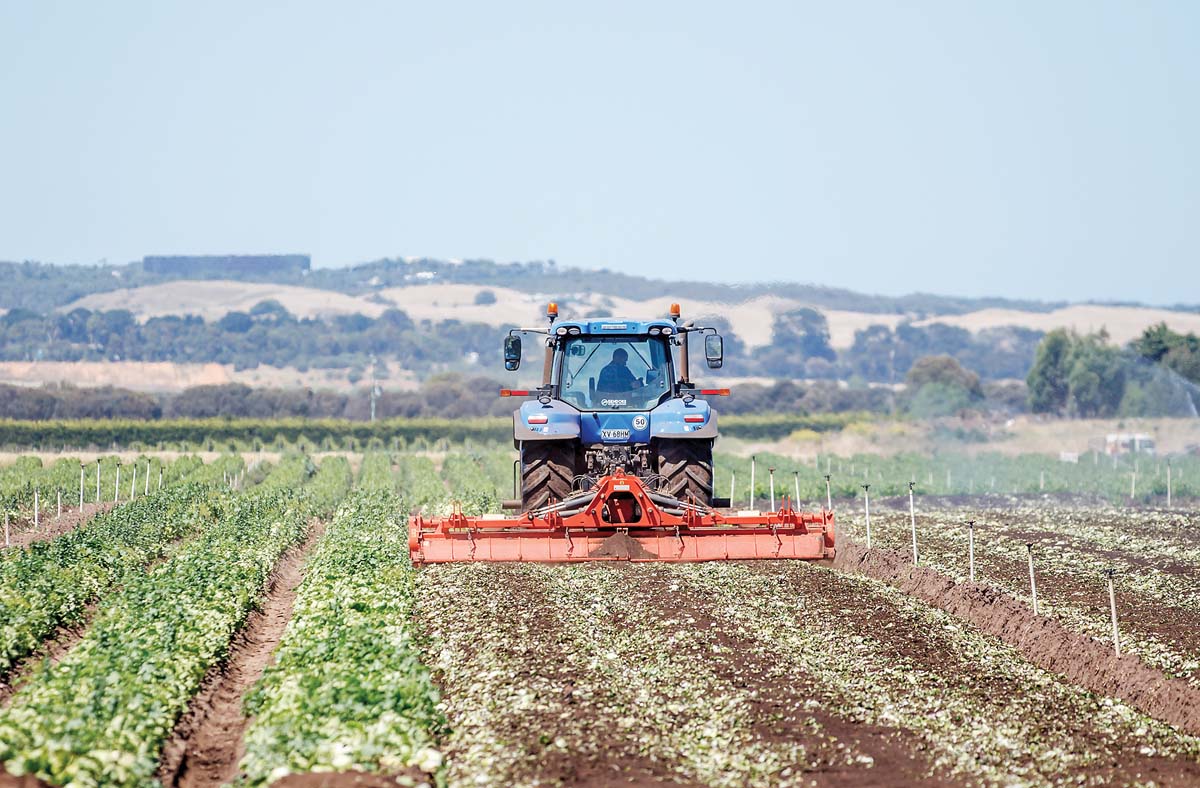FARMERS forced to destroy thousands of dollars of crops because of labour shortages are warning that prices will rise as vegetable growers rethink their business models and scale down.
In a scene familiar in agricultural regions across the state, Mornington Peninsula farmers are ploughing crops into the ground because they can’t get enough seasonal workers to harvest them.
In Rosebud, fifth generation vegetable farmer John Cochrane was devastated last week after watching $50,000 of broccoli get chopped up and buried.
Because of isolation requirements, only a handful of his seasonal workers were available for harvesting after 13 were impacted by COVID.
Although he says he’s “one of the lucky ones” who will survive, he says others may not and those who do will simply grow less.
“Farmers have taken a massive hit in the past two years, for some farms it’s not having enough staff because of travel bans, and for those who have the staff, it’s COVID,” he said.
“This is going to change the way we do things I think, we have to get smart by cutting orders back and growing what we can manage but, ultimately, that will come at a cost to the consumer.”
Mr Cochrane farms around 130 hectares over two properties, but says he is planning to cut his production in half and stick to supplying a smaller selection of loyal customers.
“We can’t go on like this because there’s a huge cost for us to plant things, it’s heartbreaking … if and when the times comes, we will reassess.”

Sam Taranto’s farm at Tyabb has also been hit hard by labor shortages, but while he hasn’t had to destroy crops, he says it’s only a matter of time.
“It’s not too bad here, we’ve put some plans in place so our losses wouldn’t be so bad, but I can feel it, our turn will come,” he said.
“With immigration restrictions and no backpackers here, everyone is being hurt by labour shortages.”
Third generation farmer Paul Gazzola says he doesn’t even want to calculate the dollar loss of losing up to 20 per cent of his staff “on any given day” because of COVID-19.
“I try not to think about the cost at this stage, that’s just in the ‘too hard basket’,” he said.
“We were already short because of immigration restrictions, and then Omicron hit – it’s not as if you can just replace them,” he said.
Supermarkets are already finding it difficult to fill shelves because of shortages compounded by COVID-related shortages along the distribution chains, and industry leaders are begging for intervention.
Agriculture Minister Mary-Anne Thomas has laid the blame on her federal counterparts.
“The agriculture visa is a responsibility of the Commonwealth government. No farm workers have arrived in Victoria through this visa, which is extremely disappointing,” she said.
“The federal government and [Agriculture] Minister [David] Littleproud must take responsibility for this and deliver real solutions for our farmers.”
In response to growing concerns, on Wednesday the federal government announced incentives to student and working holiday maker visa holders to return to Australia as soon as possible.
These temporary measures include refunds for visa application charges, removing limits on work hours, and relaxing six-month work limitations.
Victorian Farmers federation president Emma Germano called the changes “tweaks” that will do nothing to ease the current shortages.
“These are slight tweaks, too little too late,” she said.
“Victorian farmers are already in the swing of harvest and these things should have been much earlier.”
For farmers like John Cochrane who are watching vegetables rot in the ground, governments have left it too late to listen.
“None of this will move things quick enough to change the situation right now,” he said.
First published in the Southern Peninsula News – 25 January 2022